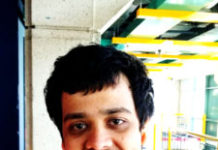Room 1103 of the Quantum Nano Centre was packed with students, professors and residents of Waterloo who were eager to hear Dr. Edmund Phelps’ guest lecture March 5. Mayor Dave Jaworsky was present, along with UW president and vice-chancellor, Feridun Hamdullaphur who hosted the event. </p>
Edmund Phelps is a world-renowned economist and professor who has contributed to the way we see the economy today.
Phelps is noted for his creation of the concept of the natural rate of unemployment and his implementation of the Golden Rule savings rate, concepts that are still being applied and used in modern economics.
The Nobel Prize winner is also the author of Mass Flourishing: How Grassroots Innovation Created Jobs, Challenge, and Change. This latest book applies Phelps’ lifetime of research and creates a new argument as to how Western nations can prosper in innovation and how some economic factors contribute to such innovation being under threat.
These reflections from his latest publication were the key notes that Phelps wanted to address during his talk.
“You look around us in the States, in Canada, in Europe … we don’t see massive innovation from these countries,” said Phelps. He believes that it is the standard economics applied today that leads to this lack of innovation.
“What is costly for nations is the inability of standard economics to understand the near stagnation of productivity and the near suppression of employment that grips the West,” said Phelps.
Phelps went into greater detail, explaining that certain factors such as government intervention in regulating the economy, economic solidarity, and social protection would be disadvantageous for innovation.
As for promoting innovation in a university environment, Phelps believes that it is not just the STEM programs that are essential for this.
“I think we should step up [our] attention towards the humanities,” said Phelps during a Q-and-A segment with the audience.
Phelps also believes that the past mentality of the student body within educational institutions needs to be reimplemented in order to promote innovation.
“[We should] try to create a student body that instead of thinking about the highest paying job he or she could possible get in the financial sector, he or she thinks about [finding] a more adventurous, knowledge seeking-career.
“It was there, in the first half of the 19th century and the 20th century. But now, you don’t see it anymore.”






























